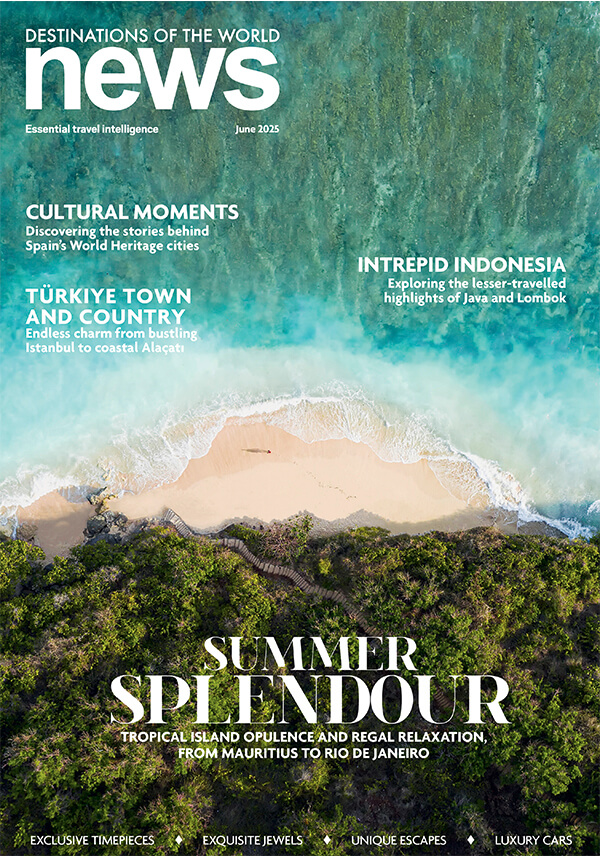The names of Niko Romito and Bvlgari Hotels & Resorts seem to go hand in hand. Wherever one goes, it is inevitable the other will surely follow. Having entered the culinary world by chance, the Castel di Sangro native has become one of the biggest names in the world of Italian gastronomy. Here, he talks about his first foray into becoming a chef, Michelin stars and the genius behind his innovative dishes.
Your road to becoming a chef started when you quit your studies in Rome and came home to take over the family business. Was it a tough decision to radically change your career path?
It wasn’t planned. I was 26, with only a few exams left to complete my degree in Economics when my father became ill. I went back to my hometown to run the family business just long enough to find a buyer. However, I quickly became passionate about cuisine, and it was then I decided to change my career. It was a natural decision; I felt like it was the right path for me, even if it required a lot of work and sacrifice.
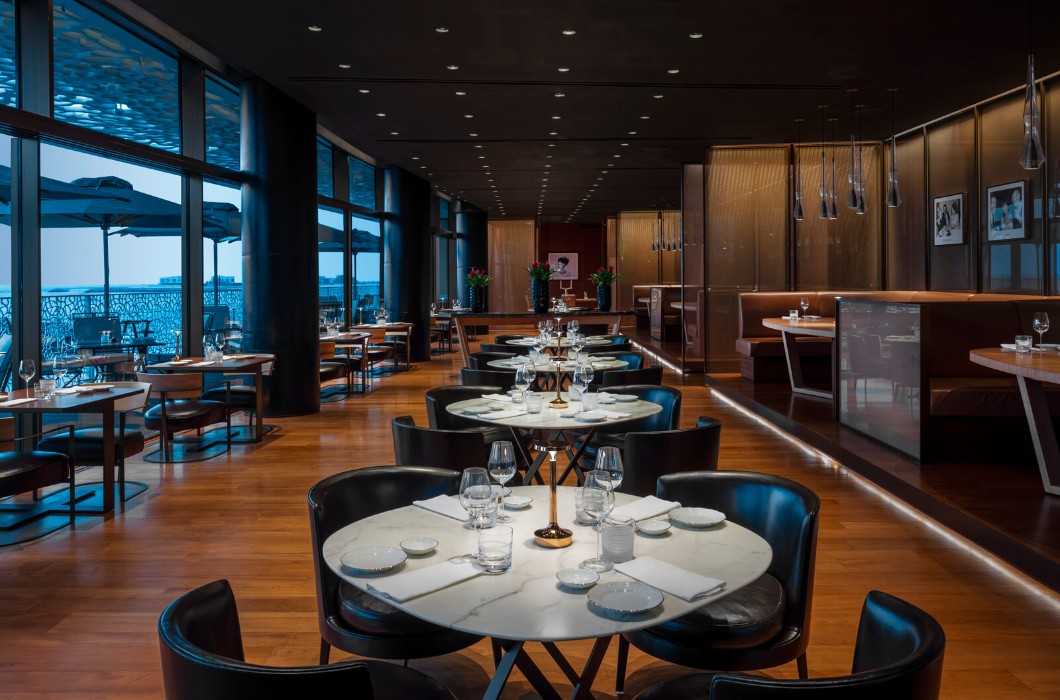
At what point did you know that being
a chef and working in the culinary world
was for you?
I became very passionate about cooking very quickly. I was fascinated by the transformation of raw materials into something completely new. I immersed myself into cooking, experimenting, and studying recipe and cook books. In the end,
I couldn’t think of anything else.
While many chefs go abroad to hone their craft, you stayed in Castel di Sangro. How has this benefitted your culinary style and development?
It helped me stay focused and find my own personal gastronomic language without being influenced by trends. Abruzzo influenced me in many ways, not just through its products and traditions, but also with the isolation that it imposed alongside the calm of its mountains. I really think it has been essential for my creativity.
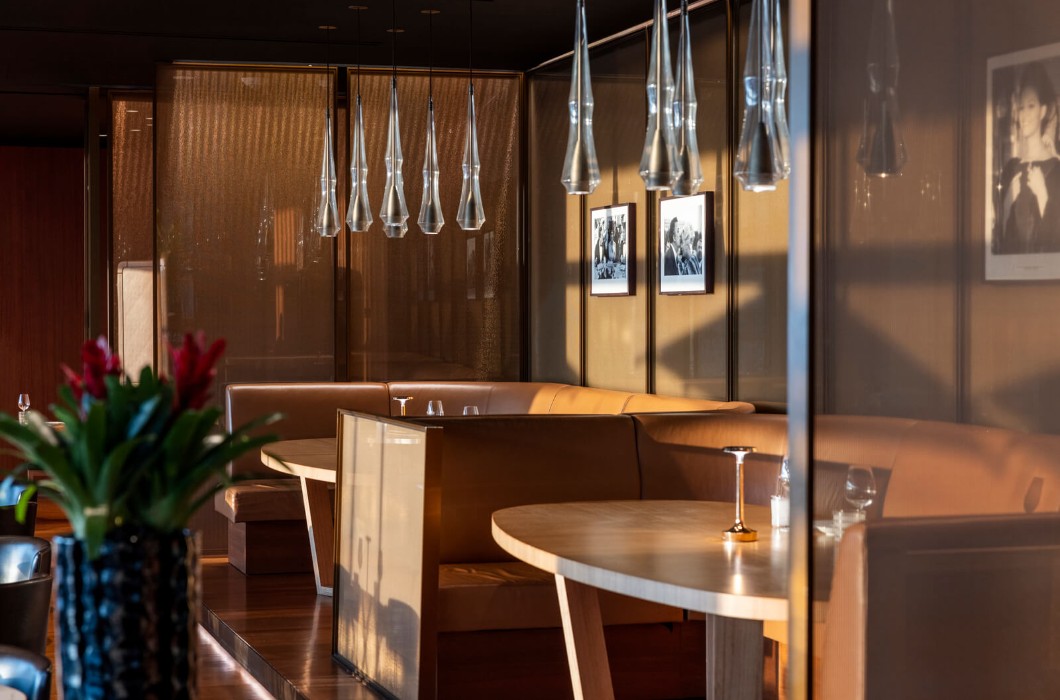
Can you talk us through your creative process when it comes to imagining and crafting a new dish?
The creative process that leads me to a new dish always combines intuition, improvisation, technique and knowledge. The raw materials guide me in the process and, when I start working on a new dish, I never know where I’m going to end. When a new dish is born, it can keep evolving and sometimes, a sudden intuition can lead to a change in a dish. But precision is essential in my cuisine; precise, intense flavours; precise and unexpected textures; and a precise yet dynamic balance.
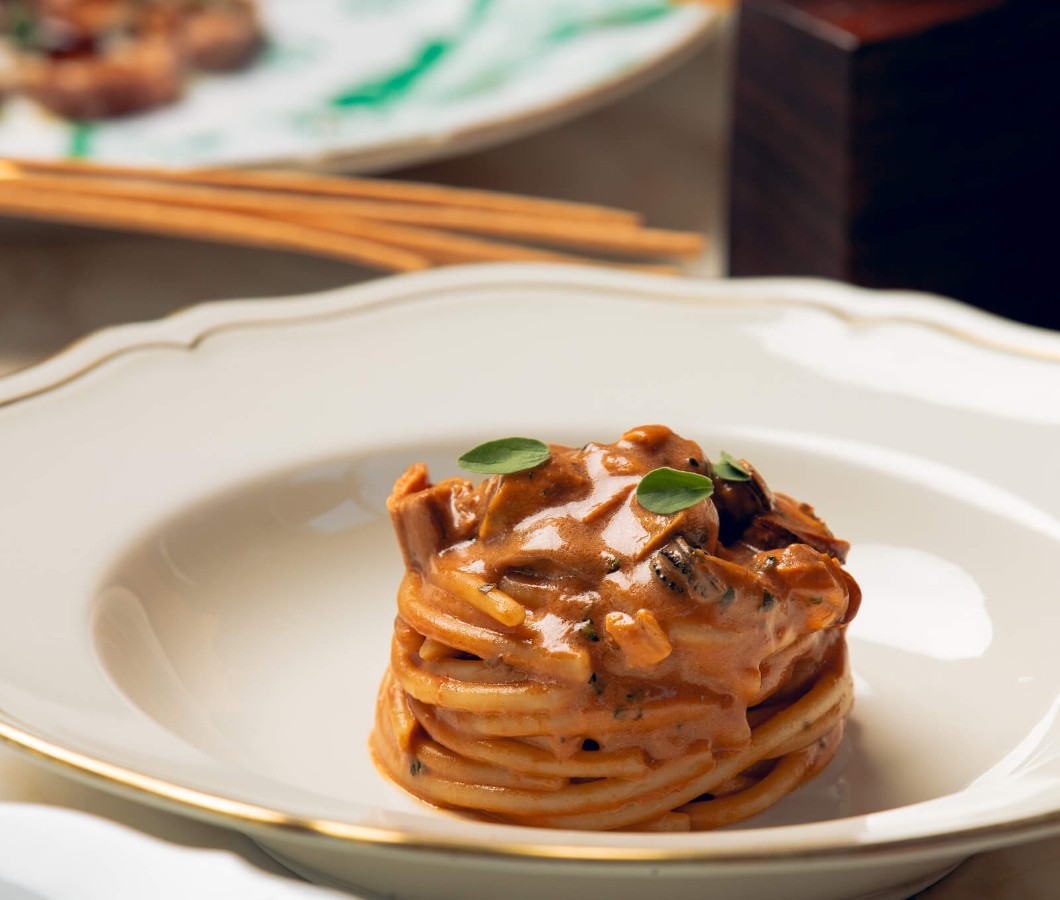
From Castel di Sangro to Dubai; what are your thoughts on the UAE food scene?
We opened Il Ristorante – Niko Romito here in 2017 and, since then, I have observed an impressive growth of the UAE food scene, with the openings of many interesting restaurants, both with resident chefs and international collaborations. This led to an important change also in the guests’ profile, who are looking for an authentic gastronomic experience and not just special effects. I think that the arrival of Michelin Guide in the UAE marked an important moment for the food scene. It is an acknowledgement of growth and also an incentive to keep improving.
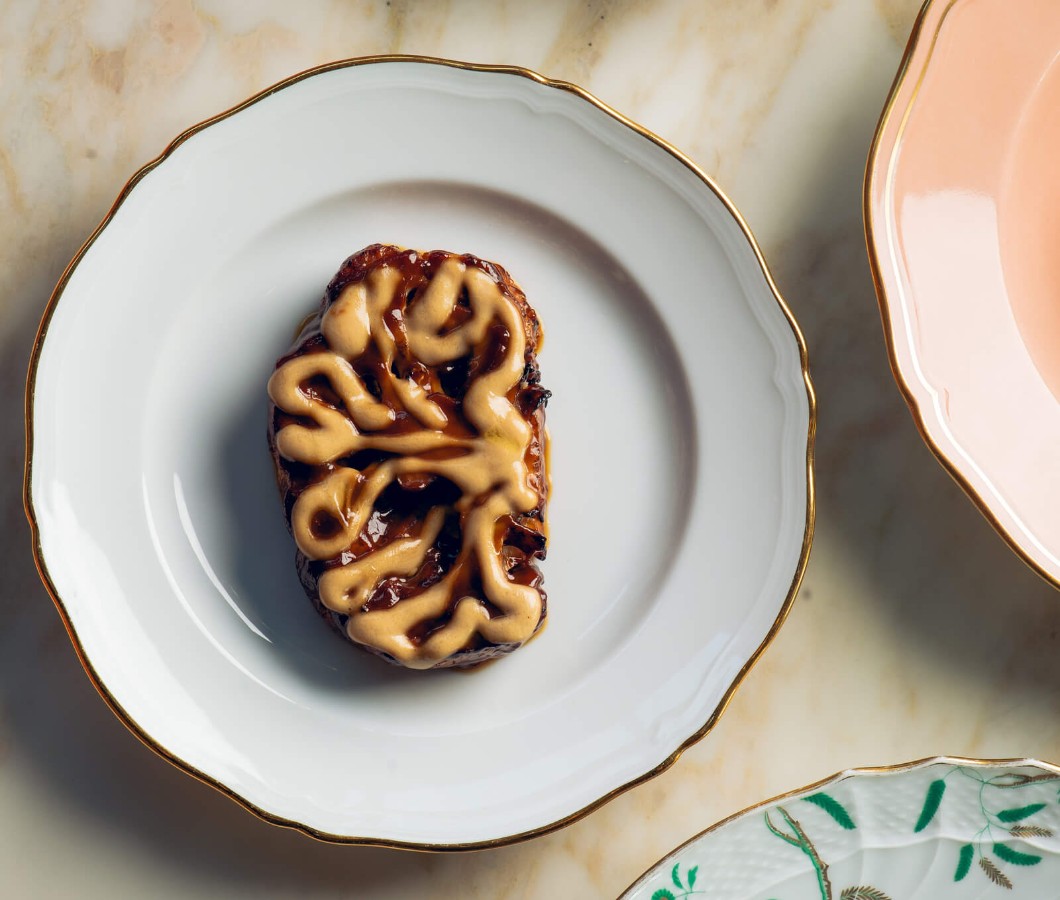
Il Ristorante – Niko Romito retained its two-Michelin-star status in 2024; is it harder to earn or to retain a star?
To retain a star is as hard as to earn it. You have to keep working to improve. A star is not a goal to stop but an invitation to continue in that direction. In my opinion, what is hard is when you don’t have that star yet, as you can’t be sure if you’re doing well. When you receive such an important accolade and recognition, you know that you’re going in a good direction but you still have to stay focused, work hard and ask yourself many questions. It’s so important to keep evolving without losing your identity.
Outside of cooking, do you have any
other passions?
I’m passionate about architecture, design and I love plants as well.
Finally, are there any exciting announcements or new openings you would like to tell us about?
The next openings with Bvlgari Hotels & Resorts will be in Miami, Maldives and Bodrum: three different locations, three beautiful projects.
THE GRILLING
First dish you really ‘mastered’ cooking? Handmade pasta — ravioli with sheep ricotta.
What motto do you live by or cook by? Believe
in your ideas and struggle for them.
Best piece of advice you’ve been given throughout your career? Our father used to keep saying to my sisters and myself to always observe to learn. Observe, study and stay focused.
Favourite dish to cook? Probably all kinds of vegetables. They require creativity and extreme technical precision, but their potential in terms of taste and textures is huge.
The One ingredient you could never cook without? Olive oil.
Bar your own, favourite restaurant in the world? I couldn’t mention just one; it depends on the mood, the country, the company. I always love to taste traditional, local food to get to know a culture, so a good family restaurant with simple but well-executed dishes and a nice atmosphere will always get me.
Favourite country/city to travel to for food? In 2023, I was in Tokyo for the first time for the opening of the Bvlgari Hotel Tokyo. Since then, I’ve been back in Tokyo four times and even though I haven’t had much time to explore the place, I love their gastronomic culture and Japanese food. I would love to explore the Japanese countryside and visit some of the producers with whom
we are working.
If you had a last meal, what would it be and why? Tortellini in brodo. I love broths and all kind of
soups and I love handmade stuffed pasta.
Greatest food indulgence? Cured meats, a good prosciutto crudo with some sourdough bread. When I start, it’s difficult for me to stop.
Strangest thing you’ve eaten? It was not strange as you intend it, but the meal that impressed me for being so different from everything I knew at that time was my first meal at Noma: a truly exceptional and inspiring experience.
Most memorable meal? Many, for different reasons. I can mention one of the first memorable meals at Calandre, near Padova. It was 2002 and they had just received their third star; Chef Massimiliano Alajmo was my age (only 28), but I started cooking only two years earlier. I was deeply touched by his cuisine and I realised how many things I still had to learn.
Who has inspired you most throughout your career and why? I don’t have one maestro; there are several great people who have inspired me and people I particularly admire today. Artists like Ettore Spalletti, an Italian painter; great businessman like l’Avvocato Gianni Agnelli; architects like Renzo Piano; or legendary restaurateurs, like the Roca brothers in Spain. I did a one-month internship at El Celler de Can Roca; it was a short
but intense experience!
Favourite cooking TV show and why?
Or favourite chef autobiography? I’m not a big fan of TV shows. I don’t have much time to watch TV and I usually prefer movies, but I recently watched some episodes of Top Chef France and I loved the format. It’s not an autobiography, but I loved to read about Auguste Escoffier. His life is really interesting and he has been a visionary chef and entrepreneur.





